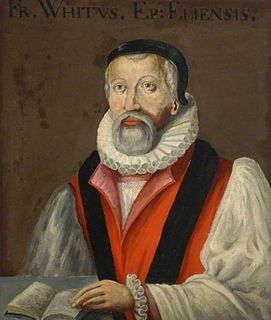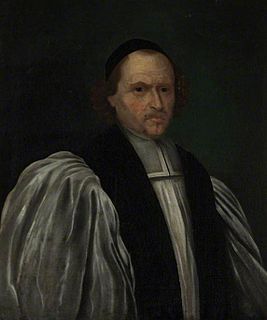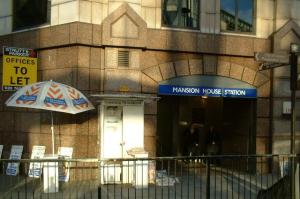
Francis White was an English bishop and controversialist.

Henry King was an English poet who served as Bishop of Chichester.
Richard Montagu was an English cleric and prelate.

Matthew Wren was an influential English clergyman, bishop and scholar.
John Maxwell Archbishop of Tuam, son of John Maxwell of Cavens, Kirkcudbrightshire, was born in or before 1586. He was educated at the University of St Andrews, where he was laureated M. A. on 29 July 1611.

William Piers was Vice-Chancellor of Oxford University from 1621 to 1624, Bishop of Peterborough from 1630 to 1632 and Bishop of Bath and Wells from 1632 to his death in 1670.

John Lonsdale was the third Principal of King's College, London, and later served as Bishop of Lichfield.
Richard Curteys (c.1532?–1582) was an English churchman. A native of Lincolnshire, after his education at St. John's, Cambridge he was ordained and eventually became chaplain to Queen Elizabeth I. He was made dean of Chichester cathedral and then Bishop of Chichester. Curteys was reputedly a promoter of preaching and the clerical improvement of Anglicanism. In Curteys' episcopate, the cost of supporting many residentiaries and providing hospitality, could not be funded by the relatively small income of Chichester Cathedral. Curteys remodelled the constitution to reduce costs. Despite the changes Curteys died penniless.
Augustine Lindsell was an English classical scholar and Bishop of Hereford. In church matters he was advanced by Richard Neile, and was a firm supporter of William Laud. As a scholar he influenced Thomas Farnaby.

Samuel Fell D.D. was an English academic and clergyman, Dean of Christ Church, Oxford and Vice-Chancellor of the University of Oxford during the First English Civil War.
Richard Howland (1540–1600) was an English churchman and academic, Master of Magdalene College, Cambridge, and of St John's College, Cambridge, and bishop of Peterborough.

Robert Grove (1634–1696) was an English Bishop of Chichester.

William Stanley (1647–1731) was an English churchman and college head, Master of Corpus Christi College, Cambridge, Archdeacon of London and Dean of St Asaph.
John Towers was an English churchman, Bishop of Peterborough from 1639, a royalist and a supporter of the ecclesiastical policies of William Laud.
George Meriton was an English churchman, Dean of Peterborough in 1612 and Dean of York in 1617.
William Bray was an English priest, chaplain to William Laud, Archbishop of Canterbury. As licenser of publications of John Pocklington, he was drawn into Pocklington's case before the Long Parliament.
Thomas Manningham (1651?-1722) was an English churchman, bishop of Chichester from 1709.
John, Becon LL.D.,, was an English divine.
Randolph Barlow, B.D. was an Anglican prelate who served in the Church of Ireland as the Archbishop of Tuam from 1629 to 1638.
Lambert Osbaldeston (1594–1659), sometimes written Osbolston was headmaster of Westminster School.
The public domain consists of all the creative works to which no exclusive intellectual property rights apply. Those rights may have expired, been forfeited, expressly waived, or may be inapplicable.

The Dictionary of National Biography (DNB) is a standard work of reference on notable figures from British history, published since 1885. The updated Oxford Dictionary of National Biography (ODNB) was published on 23 September 2004 in 60 volumes and online, with 50,113 biographical articles covering 54,922 lives.
















